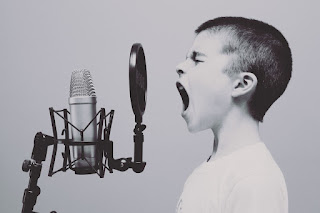• Credibility Amplification: Whether we like it or not, for many, verification on Twitter symbolises authenticity and credibility. For diabetes advocates, whose primary goal is to provide accurate information and create awareness, being verified adds an extra layer of trust for their followers. Verified accounts are perceived as authoritative sources of information, allowing advocates to spread accurate details about diabetes management, treatment options, and lifestyle changes with more impact.
• Enhanced Visibility: Verified accounts are more likely to appear at the top of search results and in relevant conversations. For diabetes advocates, this visibility boost is essential in ensuring their messages reach a broader audience. With the ever-increasing volume of content on social media, standing out from the noise is crucial. Verification ensures that the important messages of diabetes advocates are not lost in the crowd, enabling them to effectively reach people who need accurate information about the condition.
• Access to Features: Twitter verification comes with access to advanced features, such as analytics and insights into tweet performance. This data can be incredibly valuable for diabetes advocates, as it helps them understand what type of content resonates most with their audience. This information can be used to tailor their advocacy efforts, refine their messaging, and optimise their engagement strategies.
• Collaboration Opportunities: Verified accounts are more likely to be approached for collaborations, partnerships, and joint initiatives. For diabetes advocates, this means increased opportunities to collaborate with medical professionals, researchers, organisations, and other "influencers" in the healthcare space. Collaborations can lead to more comprehensive and impactful advocacy campaigns, furthering the cause of diabetes awareness.
• Building a Stronger Community: Verification status fosters a sense of community among advocates, creating a network of credible voices in the diabetes space. Verified advocates can connect more easily with each other, sharing insights, experiences, and strategies. This sense of camaraderie strengthens the overall impact of their advocacy efforts and encourages the exchange of knowledge within the diabetes community.
• Countering Misinformation: This is one of the major pulls for me to be verified. Diabetes advocates often find themselves combating misinformation and myths about the condition. A verified status on Twitter empowers advocates to debunk false information with authority and credibility. As misinformation spreads easily on social media, having verified advocates actively participating in these discussions is essential for steering the conversation in the right direction.
In a world where social media has become an integral part of advocacy, Twitter verification holds undeniable significance for diabetes advocates. The benefits range from amplifying credibility and visibility to enabling collaboration and providing access to valuable insights. By becoming verified, diabetes advocates can leverage their status to create a more informed, connected, and empowered diabetes community. As the digital landscape continues to evolve, being verified on Twitter is not just a badge of honour; it's a tool that can drive meaningful change and make a lasting impact on diabetes awareness.
BUY DIABETIC DAD A COFFEE HERE
GET MENTORING SUPPORT FROM DIABETIC DAD
Prefer PayPal?







